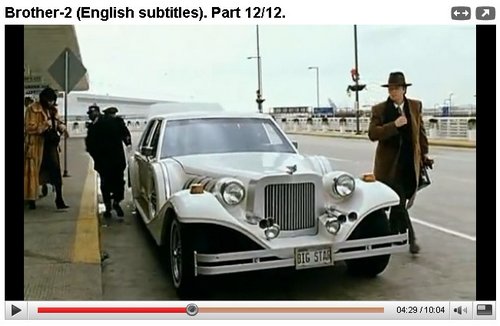I recognized the above scene near the end of Brat-2. It was from the cover to one of Anna Lawton’s books.
The main purposes of sequels is to exploit us and disappoint us, I suppose. Brat-2 fulfilled its purpose better than, say, the sequel to Irony of Fate, which while not as good as the original, was worth watching twice, and which I’d like to watch again sometime.
After it was over, I was hoping Brat-2 could be excused by having been made by someone other than the maker of the original Brat, but IMDB tells us that Aleksey Balabanov made them both. Balabanov also made another excellent film: Gruz 200. Maybe sequels are just too limiting even for someone of Balabanov’s abilities.
Both Brats are violent films, but the violence in Brat-2 is merely senseless violence. In Brat-2 we aren’t even made to feel horrified by what it does to the victims or the perpetrator. Victims just pose so they can be easy targets to be gunned down.
There is nothing of Doestoevsky in Brat-2, like there is in Brat with the relationship with Daniela’s brother, or the girlfriend, or the German or Kat. In Brat-2 the brother is just dropped out of the picture at the end, which is symbolic of what’s missing in the entire film.
